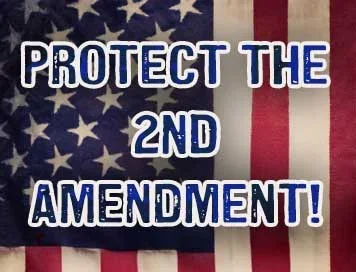Opinion
Don’t give up your guns. pic.twitter.com/0WGM4cOgs2
— AmmoLand News (@AmmoLand) October 29, 2023
Five months before an Army Reserve sergeant killed 18 people at a bowling alley and a bar in Lewiston, Maine, his relatives told police he was increasingly paranoid, erroneously complaining that people were describing him as a pedophile. Two months later, he underwent a psychiatric evaluation after service members who were training with him at Camp Smith in New York reported that he was behaving erratically, and last month, he told a friend he was “going to shoot up the drill center” at his base in Saco, Maine.
The fact that the 40-year-old petroleum supply specialist nevertheless managed to commit his horrifying crimes last week, after which he killed himself, underlines the challenge of identifying and thwarting mass murderers.
But contrary to what some critics claimed, the problem was not Maine’s “woefully weak” gun regulations.
On its face, Maine’s “yellow flag” law, enacted in 2019, could have made a crucial difference in this case. It authorizes police, after taking someone into “protective custody” based on probable cause to believe he is “mentally ill” and poses a threat to himself or others, to ask a “medical practitioner” for an assessment of whether the detainee “presents a likelihood of foreseeable harm.”
If the medical practitioner thinks so, police “shall” seek a court order temporarily barring the individual from obtaining or possessing firearms. The respondent is entitled to a hearing within 14 days, after which the order can be extended for up to a year based on “clear and convincing evidence” of a threat.
Since the Maine killer was released after spending two weeks in a New York psychiatric hospital, where he stayed for two weeks, he apparently did not meet the state’s criteria for involuntary commitment. But that needn’t have been the end of the matter.
After the shootings, neighbors in Bowdoin said the sergeant’s psychological problems were “pretty well-known.” The Maine Information and Analysis Center had alerted police about his “recently reported mental health issues,” including “hearing voices and threats to shoot up the National Guard Base in Saco, ME.”
The local sheriff’s office had received disturbing reports from “increasingly concerned” relatives, a friend, and the Saco base. But its investigation did not result in an assessment or a court order, possibly because police thought his relatives had “a way to secure his weapons.”
Gun control activists complained that Maine’s “yellow flag” law is harder to use than the “red flag” laws that 21 states have enacted, which have fewer and weaker procedural protections. That criticism seems doubly misguided.
- First, this looks like a situation where Maine’s law could have been used but, for some reason, was not.
- Second, the state’s requirements are aimed at minimizing the number of people who lose their Second Amendment rights for no good reason.
Weaker protections for respondents might make effective intervention more likely. Or they might not.
Despite what, in retrospect, look like clear warning signs, New York’s “red flag” law did not prevent the massacre that killed ten people at a Buffalo supermarket in 2022. Nor did California’s “red flag” law prevent two mass shootings that killed 18 people in that state last January.
One thing is clear: Casting a wider net inevitably means that more people will be deprived of their constitutional rights even when they do not actually pose a threat to public safety. That is true not only of “red flag” laws but also of the federal ban on gun possession by people who have been involuntarily committed to psychiatric institutions, which applies no matter how long ago that happened and regardless of whether they were ever deemed a threat to others.
Police said the Maine murderer was legally allowed to buy guns because he had no such record. The answer, Florida Gov. Ron DeSantis says, is laxer standards for civil commitment rather than stricter gun control. Both prescriptions ignore the trade-off between civil liberties and crime prevention, which activists and politicians, try as they might, cannot wish away.
About Jacob Sullum
Jacob Sullum is a senior editor at Reason magazine. Follow him on Twitter: @JacobSullum. During two decades in journalism, he has relentlessly skewered authoritarians of the left and the right, making the case for shrinking the realm of politics and expanding the realm of individual choice. Jacobs’ work appears here at AmmoLand News through a license with Creators Syndicate.









This should have never happened. Again, both state and federal government not following through with its responsibilities put someone that was a danger to himself and society out on the streets. Devin Patrick Kelly, dishonorably discharged from the Air Force mass murdered people in Texas and was able to get a gun because of the government’s failure.
Government failure in their duty shows that we need to be able to protect ourselves at any and all times everywhere and that there should be no gun free killing zones.
Arm up and carry on. Oregoneistan
Either their was a lack of communication between those who had the warning signs, or there was a failure of insight into what they were looking at. We don’t need a gun database, or stricter laws that deprive perfectly normal and sane citizens from owning guns. What we need is a mental health database that shares facts, insights, and concerns about individuals that informs those who are in a position to relieve such a person of their weapons. In all such matters, time is of the essence. Who among you doesn’t agree that we are far better off temporarily infringing… Read more »
In my not so humble opinion, he wasn’t a POS! In actuality he is the first mass shooter that I have ever felt any compassion for. I don’t know if he played in the big sandbox but fwiw the military is trained to kill people. If he was in Iraq or Afghanistan was he in combat? Did he have problems there or here when he returned to the USA? I know that in 1970 I out processed, jumped on a plane leaving Saigon, took one day to get discharged and went home. I’m glad I didn’t have PTSD or anything… Read more »
The Maine State Police have always been the gold standard for law enforcement, but we have a huge problem here in Maine with severe lack of staffing for the Maine State Police. There just aren’t enough candidates for an adequate force. Where I live in North Maine, I’ve been told that at any one time, if a call comes in, the only cop available could be up to 90 miles away. I’ve not followed this mess very closely, but from what I’ve seen, most of the investigation has been laid on the shoulders of the County Sherrif department who, IMHO… Read more »